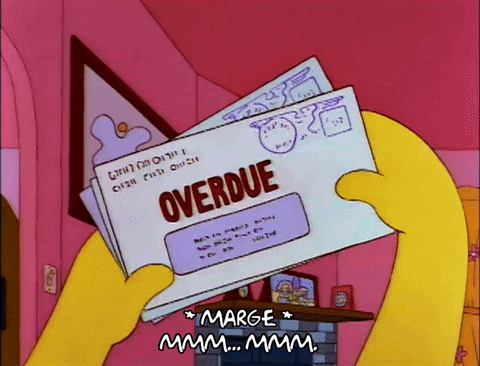CFO tip: Do you want to avoid tax debt penalties? Don’t miss these important deadlines!
You only have a few days to file your income taxes; you will not pay any penalties if you file by:
- September 15 for partnerships and S-corporations
- October 15 for individuals, sole proprietorships, C-corporations, and LLCs taxed as disregarded entities.
Can You File On-Time and Still Owe Late Payment Penalties? YES.
Late Filing and Late Payment Penalties:
With the coronavirus came changes to how we live and perform everyday activities, including filing our taxes. A good CFO knows that this year, the Internal Revenue Service (IRS) announced pushing back the filing deadline for 2020 returns from April 15 to May 17, 2021.
Here’s what you should know:
Late Penalties:
If you are due a refund, there is no penalty if you file a late tax return. A good CFO knows that if you owe tax and failed to file and pay on time, you will most likely owe interest and late penalties on the tax you pay late. To keep interest and late penalties to a minimum, you should file your tax return and pay the tax as soon as possible. Here are some facts that you should know.
1. Two penalties may apply: One penalty is for filing late, and one is for paying late. They can add up fast. Interest accrues on top of the penalties.
2. Penalty for late filing: If you file your 2020 tax return more than 60 days after the due date or extended due date, the minimum penalty is $205 or, if you owe less than $205, 100 percent of the unpaid tax. Otherwise, the penalty can be as much as five percent of your unpaid taxes each month up to a maximum of 25 percent.
3. Penalty for late payment: Generally, the penalty is 0.5 percent of your unpaid taxes per month. It can build up to as much as 25 percent of your unpaid taxes.
4. Combined penalty per month: If both the late filing and late payment penalties apply, the maximum amount charged for the two penalties is 5 percent per month.
5. An extension does not apply to the payment: You thought you were good until October 15 because you filed an extension in time, right? Not necessarily. If you owe tax, an extension does not extend your time to pay– it only extends the amount of time you have to file. If you think you owe, make an estimated payment or pay 110% of your 2020 tax liability to fall under the safe harbor.
6. File even if you can’t pay: You file on time and paying as much as possible to keep your interest and late penalties to a minimum. If you can’t pay in full, getting a loan or paying by debit or credit card may be less expensive than owing the IRS. If you owe the IRS, the sooner you pay your bill, the less you will owe.
7. Payment Options: Explore your payment options on the IRS website at IRS.gov/payments. IRS Direct Pay is a fast and free way to pay directly from your checking or savings account for individuals. You can also mail a check (also free) or pay with a debit/credit card for a fee through a third-party site. The IRS will work with you to help you resolve your tax debt. Most people can set up a payment plan using the Online Payment Agreement tool on IRS.gov.
8. Late payment penalty may not apply: If you requested an extension of time to file your income tax return by the tax due date and paid at least 90 percent of the taxes you owe, you might not face a failure-to-pay penalty. However, you must pay the remaining balance by the extended due date. You will owe interest on any taxes you pay after the due date.
Always keep in mind the two types of penalties: late filing and late payment.
When you choose us as your CFO, we will be sure to guide you in the right direction. Let us take care of your tax and accounting needs, so you can concentrate on what you do best running your business!!! Let’s discuss more in a strategy session. Book Your Free Assessment Here.

